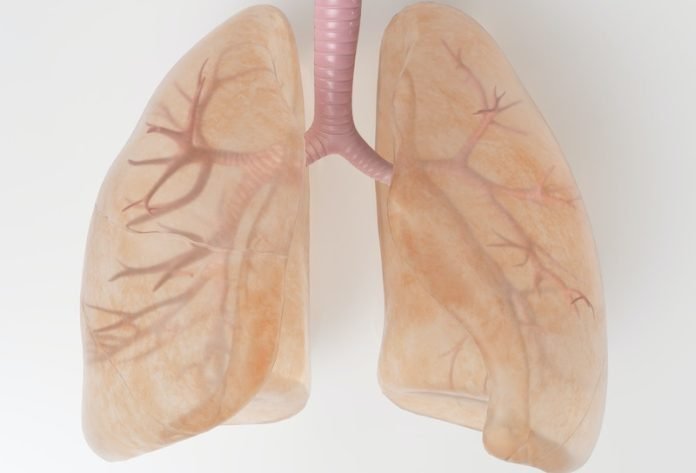
Researchers from The Royal Marsden NHS Foundation Trust, The Institute of Cancer Research, London, and Imperial College London have made significant progress in utilizing artificial intelligence (AI) to diagnose lung cancer earlier.
Their study, known as the LIBRA study, has shown promising results in using AI algorithms to identify cancerous lung nodules, which could potentially revolutionize the speed and accuracy of lung cancer detection.
Harnessing the Power of AI
The researchers gathered data from CT scans of nearly 500 patients with large lung nodules to develop an AI algorithm.
These lung nodules, abnormal growths in the lungs, can be indicative of lung cancer. The AI model was then tested to determine its ability to accurately identify cancerous nodules.
Improving Diagnosis and Treatment
Early detection of lung cancer is crucial for successful treatment. By utilizing the AI model, researchers aim to expedite the detection process and streamline the analysis of patient scans.
The study found that the AI model achieved a high accuracy rate in predicting the risk of cancer in lung nodules, outperforming existing diagnostic tests.
Enhancing Risk Calculation and Referral Decisions
The new AI model offers potential benefits in risk calculation and patient referral decisions.
Currently, patients with intermediate-risk levels pose a challenge for clinicians in determining appropriate treatment pathways.
The researchers’ AI model, when combined with existing diagnostic tests, successfully identified high-risk patients in this intermediate-risk group, facilitating early intervention.
Radiomics: Revealing Hidden Insights
To analyze the CT scan data, the researchers employed a technique called radiomics. This technique extracts hidden information from medical images that may not be readily apparent to the human eye.
By employing radiomics and AI algorithms, researchers can gain deeper insights into lung cancer detection and prognosis.
The Urgent Need for Faster Detection
Lung cancer remains a significant cause of cancer-related deaths globally, accounting for a substantial proportion of cancer fatalities in the UK.
Unfortunately, a large proportion of lung cancers are diagnosed at later stages, when treatment options may be limited. Initiatives to accelerate the detection process are crucial to improving patient outcomes.
A Promising Future
Dr. Benjamin Hunter, a Clinical Oncology Registrar at The Royal Marsden NHS Foundation Trust, expressed optimism about the potential impact of the AI model.
By accurately identifying high-risk patients and expediting their access to early intervention, the technology may enhance treatment success rates.
The next step involves testing the AI model on patients with large lung nodules in clinical settings to validate its predictive capabilities.
Advancing Scientific Research with AI
Chief investigator for the LIBRA study, Dr. Richard Lee, emphasized the significance of scientific research and innovative technologies like AI in early cancer detection.
The study highlights the commitment of institutions like The Royal Marsden and the ICR to push boundaries and accelerate the diagnosis of lung cancer.
A Patient Perspective
Keith Hewett, a patient diagnosed with lung cancer, shared his experience and stressed the importance of timely diagnosis.
Having experienced the challenges of monitoring lung nodules, Keith expressed his support for any technology that can provide greater clarity and earlier cancer detection, as early treatment significantly improves outcomes.
Conclusion: Transforming Lung Cancer Detection
The integration of AI into lung cancer diagnosis holds tremendous promise.
By leveraging AI algorithms, medical professionals can enhance their ability to identify high-risk patients and expedite their access to timely treatment.
As research progresses, this innovative approach has the potential to revolutionize lung cancer diagnosis and significantly improve patient outcomes.
If you care about lung health, please read studies about why Viagra may be useful in treating lung diseases, and scientists find herbal supplements to treat lung cancer.
For more information about health, please see recent studies about gum disease linked to impaired lung function, and results showing fungi causing deadly lung infections found throughout the US.
The study was published in eBioMedicine.
Copyright © 2023 Knowridge Science Report. All rights reserved.



